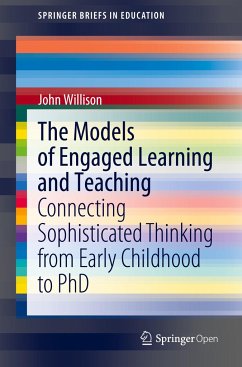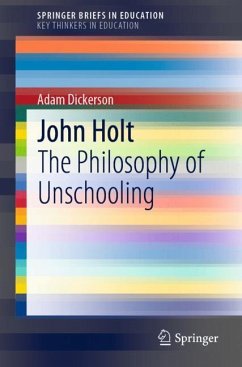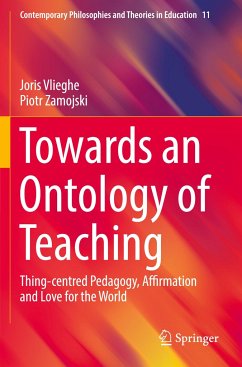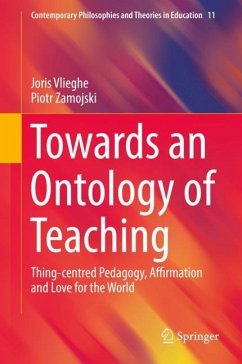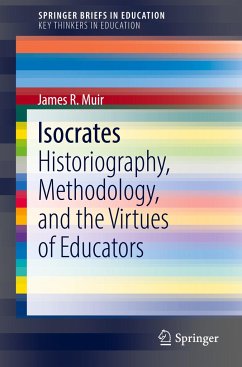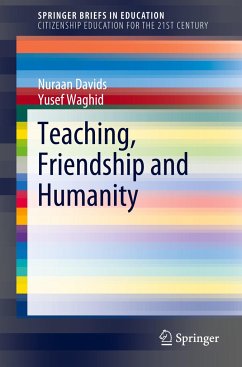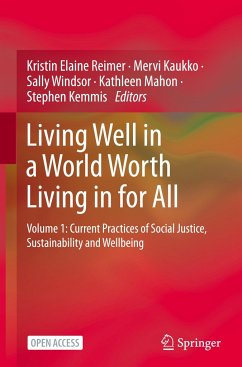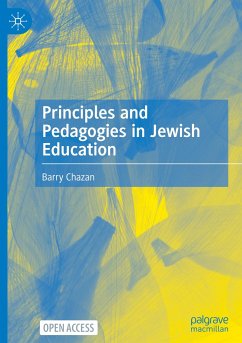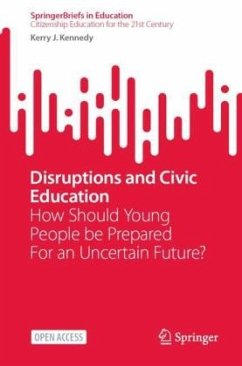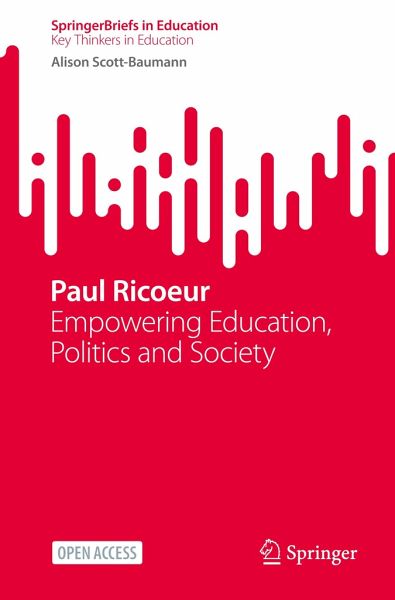
Paul Ricoeur
Empowering Education, Politics and Society
Versandkostenfrei!
Versandfertig in 6-10 Tagen
23,99 €
inkl. MwSt.

PAYBACK Punkte
12 °P sammeln!
This open access book employs Paul Ricoeur's methodologies to identify, challenge, and replace with responsible language the many continuing abuses of power, including in the university curriculum and in the international discourse of right-wing populism. Using Ricoeur's philosophy, the book provides a meta-frame for current debates about the university and a pragmatic micro-frame for supporting staff and students to develop important conversations on campus. It introduces the Community of Inquiry approach and describes its use to engage with complex ideas on which society has recently become ...
This open access book employs Paul Ricoeur's methodologies to identify, challenge, and replace with responsible language the many continuing abuses of power, including in the university curriculum and in the international discourse of right-wing populism. Using Ricoeur's philosophy, the book provides a meta-frame for current debates about the university and a pragmatic micro-frame for supporting staff and students to develop important conversations on campus. It introduces the Community of Inquiry approach and describes its use to engage with complex ideas on which society has recently become silent. By contrasting Ricoeur's work on Algeria and his work in Chicago, USA, .a bias blind spot is revealed in his desire for dialectical balance and reciprocity. This prevented him (and for some years the author) from accepting the connections between colonialism, slavery and racism and the urgent need for reparative justice.
With Ricoeur, the readers can think differently: howto recognize and tackle racism and the democratic deficit, how to reduce epistemic injustice by learning how to speak out, how to move away from forced polarities and develop a pedagogy of hope as well as an acceptance of provisionality and the intractability of certain existential problems.
With Ricoeur, the readers can think differently: howto recognize and tackle racism and the democratic deficit, how to reduce epistemic injustice by learning how to speak out, how to move away from forced polarities and develop a pedagogy of hope as well as an acceptance of provisionality and the intractability of certain existential problems.



